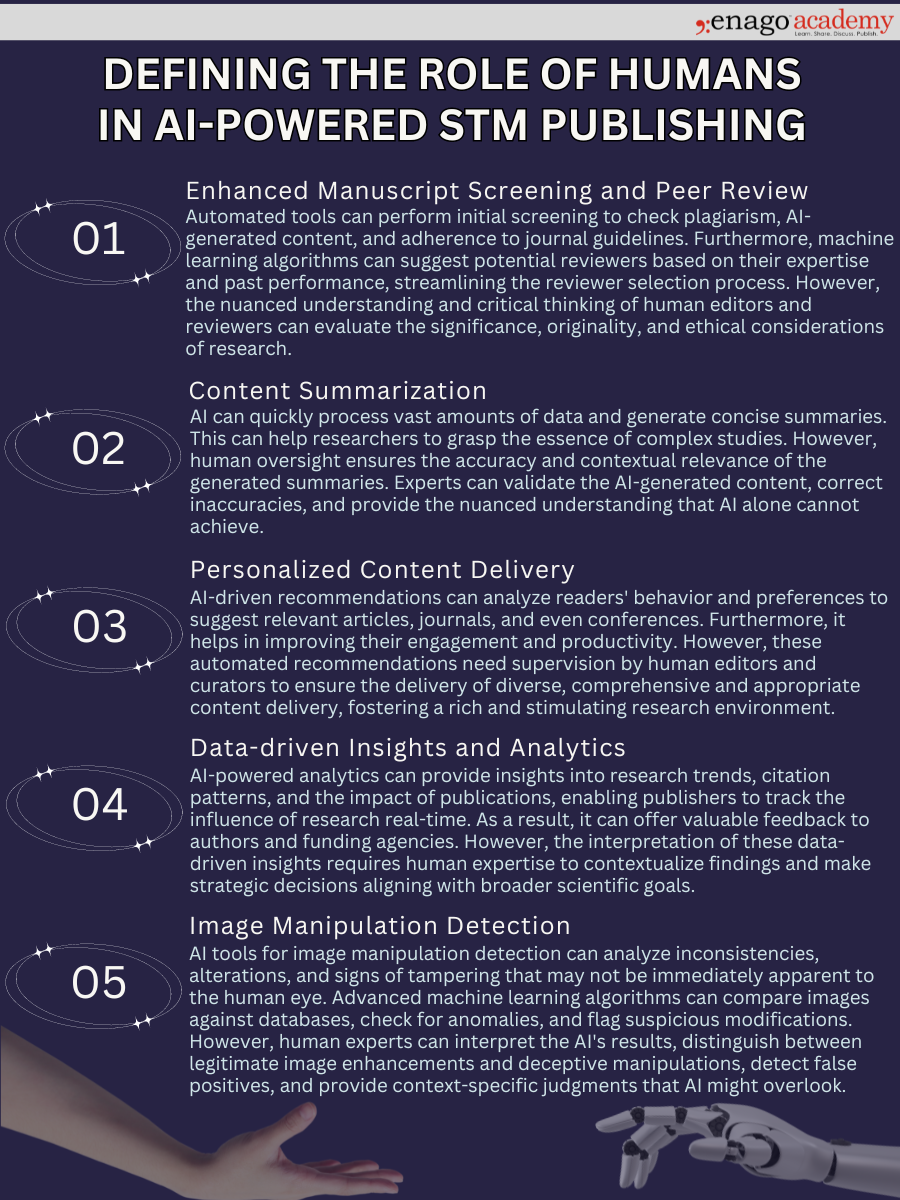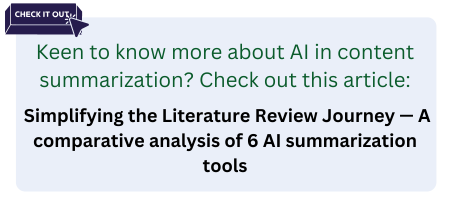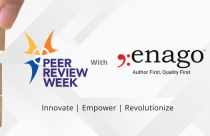STM Trends 2028: Preserving the human touch in an AI-driven landscape

Every year, the scholarly publishing industry eagerly awaits the release of the STM publishing trends. The emergence of AI tools and guidelines to ensure their ethical use has challenged the traditional publishing paradigms. This has casted a long-term impact on our community. As AI ushers a new era in STM publishing, it comes as no surprise that AI is the central theme of the new STM trends 2028.
As we embrace AI-powered publishing, isn’t it crucial to reimagine the human factor? Furthermore, understanding the effect of growing digitization on research and scholarly publishing becomes essential. This siren the need to reassess the role of human interference in AI-powered research publishing.
STM Trends 2028
Offering a thematic representation of the major strides in the STM publishing industry, this year’s STM Trends edition have released their theme titled ‘Re-imagining the Human Factor: Defining our place and values in the networked machine era.’ The theme focuses upon the human-AI hybrid future of research and scholarly publishing. Committed to building trust in research, especially with the growing erosion of public trust in science, this year’s theme directs the right use of AI in research and publishing.
As we reimagine the human factor in the machine era, is the future a technical utopia? With the growing number of papermills and unethical research practices, the risk of technology being exploited cannot be ignored. As a result, this makes the future of responsible research uncertain and calls the need to preserve the ‘Human Factor.’
With higher advancements come greater responsibilities! Appropriate human supervision and their regulated use is necessary to counter their risks in data or image manipulation and duplication, biased outputs, false authorship, etc.
Pillars of STM Trends
As STM trends this year revolves around hybrid intelligence, here are the key tenets that emphasizes upon this year’s tale!
1. Humans and Machines
The impact of Generative AI is accompanied by unique questions, opportunities, and challenges. However, several questions perplex the STM publishing stakeholders. Would AI corrupt the scholarly record and spread false information? Would it aid in the delivery of reliable research? How will humans and machines collaborate to curate the scholarly record by 2028? Thoughtful answers to these questions can harness AI’s potential while safeguarding the ethical conduct of scientific communication.
2. Sources of Truth and Trust
As humans and machines collaboratively interact with the scholarly record through various processes and innovative workflows, determining its credibility becomes crucial. What sources can we trust? Who can we rely upon? This year’s trends revolve around these areas, highlighting the enhancement of the traditional peer review process by automated checks. Untangling this complexity can maintain trust and integrity of scientific communication.
3. Cohesion
Malicious actors like paper mills will inevitably find ways to exploit technology for personal gain, spreading misinformation and disinformation that undermine trust in science. Additionally, geopolitical tensions can fragment the developments in research. Hence, a critical question arise; Would trust, stability, and cohesion sustain unity in this challenging landscape? As we move forward, fostering these elements is essential to preserve integrity and collaborative spirit of the global research community.
As we explore each pillar of this year’s theme, one key takeaway is the indispensable role of humans for using AI in research and publishing. However, the need of nuanced understanding and critical thinking skills in human reviewers cannot be ignored. This can further evaluate the significance, originality, and ethical considerations of research. Therefore, a hybrid approach combining AI tools with human judgment, is becoming the norm.
Charting a Hybrid Future of Research
As AI is set to change the pace of publishing, understanding the areas of their integration becomes essential. Here are some areas where AI-Human hybrid intelligence can help:


However, as AI is integrated into STM publishing, ethical considerations surrounding its use will gain prominence. AI systems can inadvertently perpetuate biases present in training data, leading to skewed outcomes in peer review, content recommendations, and even in the recognition of scientific contribution. As a result, diverse editorial boards and review panels should ensure fair and equitable treatment of all researchers. Additionally, transparent AI algorithms and accountability mechanisms are essential to maintain trust and integrity in the publishing process.
As AI is set to transform STM publishing, reimagining the human factor remains central. By defining the roles of AI and human expertise, we can create a more efficient, equitable, and dynamic publishing ecosystem. This symbiosis will drive the future of ethical scientific communication, ensuring the advancement of knowledge and innovation for the betterment of society.









